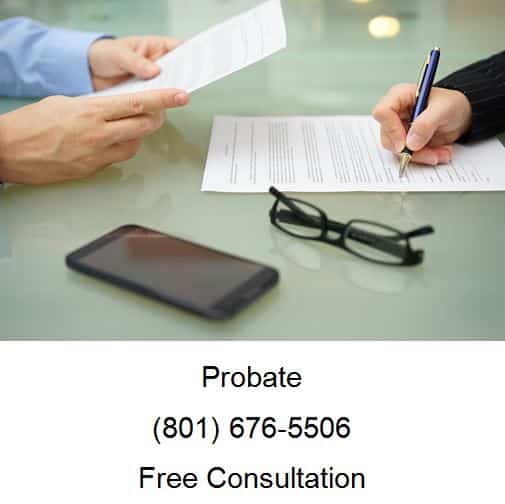
Sometimes all you need is a little break when you find yourself struggling to make your mortgage payments. A loan modification program can provide relief by making permanent or temporary changes to your loan, such as by reducing your interest rate or extending your payments. You don’t have to default entirely you can make a few adjustments and get back on track without doing significant damage to your credit.
A loan modification is a change to the original terms of your mortgage, typically due to financial hardship. The goal is to reduce your monthly payment and this can be achieved in a variety of ways. Your lender will calculate a new monthly payment based on amendments made to your initial mortgage contract.
Options for Loan Modifications
Some types of modification are better than others, and your lender might not offer all of them, although it might have additional options. Options include:
• Principal reduction: Your lender can eliminate a portion of your debt, allowing you to repay less than you originally borrowed. It will recalculate your monthly payments based on this decreased balance, so they should be smaller. Lenders are typically reluctant to reduce the principal on loans, however. They’re more eager to change other features which can result in more of a profit for them not a loss. If you’re fortunate enough to get approved for a principal reduction, discuss the implications with a tax advisor before moving forward because you might find that owe taxes on the forgiven debt. This type of modification is usually the most difficult to qualify for.
• Lower interest rate: Your lender can also reduce your interest rates, which will reduce your required monthly payments. Sometimes these rate reductions are temporary, however, so read through the details carefully and prepare yourself for the day when your payments might increase again.
• Extended term: You’ll have more years to repay your debt with a longer-term loan, and this, too, will result in lower monthly payments. This option is commonly referred to as “re-amortization.” But longer repayment periods usually result in higher interest costs overall because you’re paying interest across more months. You could end up paying more for your loan than you were originally going to pay.
• Convert to a fixed rate: You can prevent problems by switching to a fixed-rate loan if your adjustable rate mortgage is threatening to become unaffordable.
• Postpone payments: You might be able to skip a few loan payments. This can be a good solution if you’re between jobs but you know you have a paycheck out there on the horizon somewhere, or if you have surprise medical expenses that will be paid off eventually. This type of modification is often referred to as a “forbearance agreement.” You’ll have to make up those missed payments at some point, however. Your lender will add them to the end of your loan so it will take a few extra months to pay off the debt.
Depending on the type of loan you have, it might be easier to qualify for a loan modification. Government programs like FHA loans, VA loans, and USDA loans offer relief, and some federal and state agencies can also help. Speak with your loan servicer or a HUD-approved counselor for details. For other loans, try the Fannie Mae Mortgage Help Network. The federal government offered the Home Affordable Modification Program (HAMP) beginning in 2009, but that expired on Dec. 31, 2016. The Home Affordable Refinance Program (HARP) expired two years later at the end of 2018. But HARP has been replaced by Freddie Mac’s Enhanced Relief Refinance Program and by Fannie Mae’s High Loan-to-Value Refinance Option, so these might be a good place to start for assistance.
Why Lenders Modify Loans
Modification is an alternative to foreclosure or a short sale. It’s easier for homeowners and it tends to be less expensive for lenders than other legal options. You get to stay in your home, and your credit suffers less from modification than it would after a foreclosure. Otherwise, your lender has several unattractive options when and if you stop making mortgage payments and it must foreclose or approve a short sale. It can:
• Attempt to collect the money you owe through wage garnishment, bank levies, or collection agencies
• Write the loan off as a loss
• Lose the ability to recover funds if you declare bankruptcy
These options damage your credit, and they’re expensive and time-consuming for lenders.
How to Get a Loan Modification
• Start with a phone call or online inquiry, and let your lender know about your financial situation. Just be honest and explain why it’s hard for you to make your mortgage payments right now.
• Lenders will require an application and details about your finances to evaluate your request, and some require that you also be delinquent with your mortgage payments, usually by 60 days. Be prepared to provide certain information:
• Income: How much you earn and where it comes from
• Expenses: How much you spend each month, and how much goes toward different categories like housing, food, and transportation
• Documents: Proof of your financial situation, including pay stubs, bank statements, tax returns, loan statements, and other important agreements
• A hardship letter: Explain what happened that affects you making your current mortgage payments, and how you hope to or have rectified the situation. Your other documentation should support this information.
• IRS Form 4506-T: Allows the lender to access your tax information from the Internal Revenue Service if you can’t or don’t supply it yourself.
The application process can take several hours. You’ll have to fill out forms, gather information, and submit everything in the format your lender requires. Your application might be pushed aside or worse, rejected if something your lender asked for is missing or outdated, such as a tax return that’s three years old. It might be several weeks before your lender gives you an answer, and it can take even longer to actually change your loan when and if you get approved. Keep in frequent contact with your lender during this time. It might have questions and just hasn’t gotten around to calling you yet. It’s usually best to do what your bank tells you to do during this time, if at all possible. For example, you might be instructed to continue making payments. Doing so could help you qualify for modification. In fact, this is a requirement for approval with some lenders. Lenders have different criteria for approving modification requests, so there’s no way to know if you’ll qualify. The only way to find out is to ask. Unfortunately, homeowners in distress attract con artists. Beware of promises that sound too good to be true. It’s best to work directly with your lender to be on the safe side. Some organizations will promise to help you get approved for a loan modification, but these services come at a steep price and you can easily do everything yourself. They typically charge you, sometimes exorbitantly, to do nothing more than collect documents from you and submit them to your lender on your behalf.
In some states, they’re not legally permitted to charge a fee in advance to negotiate with your lender, and in other states, they’re not allowed to negotiate for you regardless of when you pay them. Of course, don’t count on them telling you this.
Modification is typically an option for borrowers who are unable to refinance, but it might be possible to replace your existing loan with a brand new one. A new loan might have a lower interest rate and a longer repayment period, so the result would be the same you’d have lower payments going forward. You’ll probably have to pay closing costs on the new loan, however, and you’ll also need decent credit.
Consider Bankruptcy
If all else fails, you might have one other option filing for Chapter 13 bankruptcy. This isn’t the same as a Chapter 7 bankruptcy where the court takes control of your non-exempt assets, if any, and liquidates them to pay your creditors. Chapter 13 allows you to enter into a court-approved payment plan to pay off your debts, usually for three to five years. You can include your mortgage arrears if you qualify, allowing you to catch up and get back on your feet, but you must typically continue to make your current mortgage payments during this time period. This might be possible, however, if you can consolidate your other debts into the payment plan as well. You must have sufficient income to qualify. A loan modification can help if you’re behind on paying a loan, such as a mortgage. Defaulting on a secured loan can result in the loss of your home, car, or other valuable possession.
Although refinancing a loan is one possibility that can avoid, for example, foreclosure, it may also be possible to modify your loan. With a loan modification, you keep your existing loan, but the lender agrees to changes in its terms. A modified loan may have a lower interest rate. You could even have a variable interest rate converted to a fixed-rate. The length of your term may be extended as well. A lender will often consider your circumstances to find a solution that helps you pay back the principle. The alternatives, including foreclosure, can be extremely costly not just for you, but your lender or financial institution. You may also face aggressive collections actions. There are specific qualifications if you are considering mortgage modification. The requirements include being delinquent on a loan for at least 60 days, having an imminent danger of default, and demonstrating financial hardship, such as the loss of a job, spouse, or physical or mental capacity to repay the loan. Generally, you can modify a loan when you have bad credit. Lower payments can help you get back on your feet. As a result, the loan will be stretched out longer. But the paperwork for modifying loans can be complex. The process may be worthwhile in the long run, but to determine if it’s a good idea for you, consider the following:
• The process takes time: Loan modifications require a lot of paperwork that can be long and frustrating. If your circumstances are bad enough, and you risk losing your home, the process may be worth it. You are most likely to consider this route, with the help of an Orange County bankruptcy attorney, if you’re behind in payments or poor loan terms are hurting your finances.
• It’s easy to be conned: Scam artists and even entire organizations prey on consumers who are struggling. If your home is foreclosed on, it goes on public record, so con artists have access to your information. You may approach your lender or bank about the situation. But the information provided is available to other companies, which may try to trick you into a financial solution. If any company contacts you, research with the Consumer Financial Protection Bureau to see if it has engaged in illegal activities; otherwise you may be conned into sending money that doesn’t go towards your loan.
• Your credit: A loan modification may be noted on your credit report. Although the impact isn’t as severe as foreclosure, the process can lower your credit score and affect your eligibility for future loans. Changing your mortgage terms is all about weighing the risks. If your financial circumstances are tough enough, having to pay the loan over a longer period, with more interest, is a better alternative to, for example, losing your home.
Loan modifications can be confusing. There is a lot of paperwork and most of it is full of legalese. In many cases, homeowners find that it is far too easy to agree to something when they don’t realize what it is they are agreeing to. There isn’t just one approach to modifying a loan. You may have modified your student loans. That doesn’t mean that it will be just as easy to modify your home or car loan. They have their own oddities. Some federal student loans allow borrowers in repayment to skip their payments for a month or even a year – without any interest added. Other federal student loans do not. The boundaries for what is possible and what’s not are very clear, but they are specific to each and every lender. If you have questions about loan modifications or you are struggling with debt and trying to make your mortgage payment, please get in touch with one of the experienced loan modification attorneys.
Loan Modification Lawyer Free Consultation
When you need to get a loan modification, please call Ascent Law LLC for your free consultation (801) 676-5506. We want to help you.
8833 S. Redwood Road, Suite C
<span itemprop=”addressLocality”>West Jordan, Utah
84088 United States
Telephone: (801) 676-5506
Recent Posts
Selling Construction Material To Unlicensed Contractors
Is A Legal Separation Necessary?
Source: https://www.ascentlawfirm.com/is-a-loan-modification-a-good-idea/





